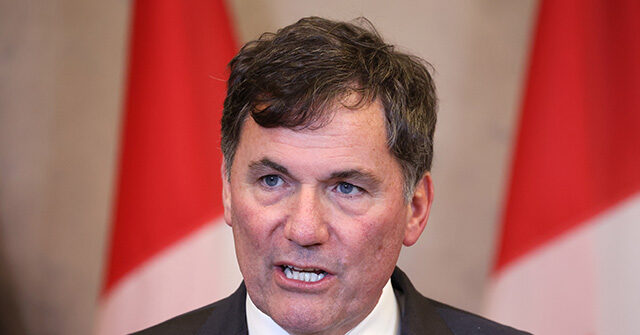On a notable Thursday, Canadian Public Safety Minister Dominic LeBlanc announced a significant expansion of the nation’s firearms regulations through the addition of 324 more “assault-style firearms” to the banned list. These newly banned firearms, all classified as semi-automatic and possessing sustained rapid-fire capabilities, must be surrendered by owners before an amnesty period concludes on October 30, 2025. This move is part of Canada’s ongoing gun control efforts, which leverages past tragedies such as the Ecole Polytechnique massacre, commemorating its 35th anniversary. LeBlanc emphasized that reinforcing gun control measures is essential to honoring the memories of those lost in mass shootings and aims to prevent further community devastation throughout Canada.
In a related development, Canada’s Defense Minister Bill Blair suggested that the confiscated firearms could be sent to Ukraine to bolster their defenses against Russian aggression. Blair stated that the Canadian government has been collaborating closely with Ukraine to identify weapons suitable for combat, which could be part of a compensation program for the banned firearms. According to Blair, the Ukrainian officials confirmed that some of the newly banned guns align with their military needs. Therefore, the Canadian Department of National Defense plans to work with local manufacturers to facilitate the transfer of these weapons from Canada to Ukrainian forces, establishing a dual purpose for firearms that are now deemed illegal for domestic possession.
The announcement of the extended ban sparked immediate backlash from Canadian gun rights advocates and political opponents. Wes Winkel, representing the Canadian Sporting Arms and Ammunition Association, criticized the move as a performative act lacking substantive impact on public safety. He noted that such firearms are rarely implicated in crimes, arguing that the ban serves primarily to appease urban voters rather than address real safety concerns. Similarly, Conservative MP Raquel Dancho framed the government’s actions as scapegoating lawful gun owners, such as hunters and sport shooters, while deflecting attention from rising crime rates attributed to other factors, including ineffective governmental policies.
Alberta Justice Minister Mickey Amery echoed these sentiments, labeling the firearms policies as not grounded in evidence or public safety considerations. He criticized the federal government for neglecting the need to address the criminal usage of firearms by instead focusing efforts on restricting law-abiding gun ownership. The provincial government of Alberta, along with others, has drawn the line against the federal mandatory gun buyback program, indicating a willingness to resist Ottawa’s directive in favor of local autonomy on firearms regulation.
Critics of the Liberal government’s recent actions accuse them of using firearm restrictions as a political strategy to create division within Canada, especially in the face of declining public trust as the next election cycle approaches. Tracey Wilson from the Canadian Coalition for Firearm Rights stated that the ruling party is engaging in tactics aimed at securing votes while disregarding pressing issues related to violent crime, such as addressing the trafficking of firearms that dominate the criminal landscape. Wilson and other critics maintain that the government’s focus is misplaced, emphasizing the need for real solutions to combat actual gun violence in communities.
Amidst these debates, LeBlanc has acknowledged ongoing discussions about banning the SKS rifle, a firearm favored by many Canadian hunters, including First Nations and Inuit communities. Previous attempts by the Liberal government to ban the SKS faced backlash and significant public opposition, leading to a retreat from such plans. The challenge remains for the government, which recognizes the sensitive political implications tied to this particular weapon, as it works to balance the interests of diverse stakeholders involved in Canada’s complex firearm ownership landscape. As the political climate shifts, the conversation surrounding gun control and public safety continues to evolve, intertwined with broader societal issues and the looming threat of heightened crime rates.

